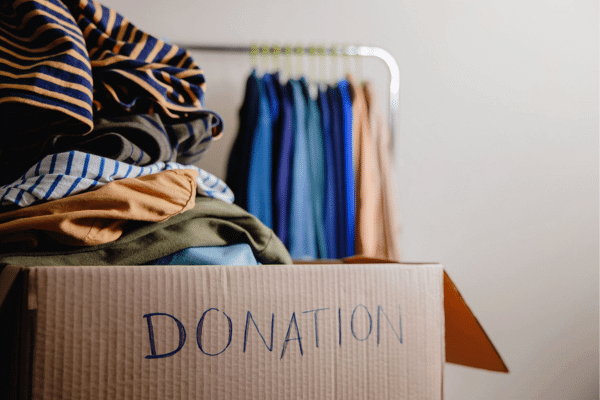I used to be a fast fashion enthusiast. Sales, trends, and the constant thrill of buying new clothes were all part of my routine. I was on the mailing lists of Zara, H&M, Valleygirl, Mirrou and so many more brands – Shein wasn’t around back then, but if it was, I’d certainly been one of their top consumers. Going to the mall was a weekly experience for me; it felt like a fun way to express myself, and I never really thought about the impact my consumption had on the planet.
That all changed when I discovered some eye-opening statistics:
- Australians throw away 6,000kg of textiles every 10 minutes.
- Each person in Australia discards an average of 23 kg of clothing annually.
- Globally, only 12% of textiles are recycled.
These numbers blew my mind and made me realise just how much waste I was personally contributing to. My approach to fashion—and life—has changed ever since.

To begin my journey away from fast fashion, I eliminated its influence from my life. This meant unsubscribing from marketing emails, unfollowing social media accounts, and avoiding malls. The first few months were tough—the dopamine rush from new purchases was hard to replace. Instead, I focused on restyling what I owned, attending clothing swaps, and shopping at op-shops when I really craved something new.
Op-shopping became my favourite thing to do. I found some of my most favourite pieces from second-hand shops. Melbourne’s diverse range of thrift stores is a goldmine. Eventually, it became a “flex” (as Gen Zs would say) to tell people my whole outfit was thrifted – I’d always get the most surprised reactions!
While op-shopping can feel like a more sustainable alternative, it’s important to approach it mindfully. It’s easy to overconsume, even when the items are second-hand, and end up with a closet full of things you don’t need. Additionally, not all brands found in op-shops follow ethical or sustainable practices. Just because something is thrifted doesn’t mean it’s an ethical purchase. Staying mindful of what you’re buying, where it comes from, and how much you’re consuming is crucial—even in the world of second-hand shopping.
View this post on Instagram
Recent research shows that many charity stores in Australia are overwhelmed with donations they can’t sell, with only about 10 per cent of donations to op-shops estimated to actually make it to the store floor. Many unsaleable donated textiles are exported to other countries, typically in Africa and Southeast Asia. This practice is controversial because it can flood local markets, stifling local textile industries and contributing to environmental issues abroad.
The lack of transparency around what happens to unsaleable items in charity bins is concerning. Some reports suggest up to 30% of donations are not suitable for resale. What can we do with garments that are truly unwearable?
View this post on Instagram
I started After to offer a convenient option for households and businesses to recycle their torn, worn, or stained items that cannot be re-sold or re-worn in a more responsible way. By working with recyclers and up-cyclers, we ensure these materials are transformed into new products or fibres, reducing the amount sent to landfills.
Being on this journey, I’ve learnt that recycling should always be a last resort. Before we reach the point of recycling, we should prioritise repairing, reusing, and repurposing our clothing. The more we can extend the life of our garments, the less waste we generate in the first place.
We need to encourage communities to share knowledge on repurposing, recycling, and making more conscious consumption choices to collectively reduce the strain on our environment. Through educating and collaborating, we can empower each other on our journeys of sustainable lifestyles.
YESHA PATEL is a Melbourne-based entrepreneur and founder of after, Australia’s first start-up collecting textile waste from households and businesses for ethical recycling. Having diverted almost 6000 kilograms of unwearable textiles and clothing waste from landfill, they are expanding to Adelaide, Melbourne and Sydney this year.
READ ALSO: Yesha Patel: On building a circular economy in fashion





